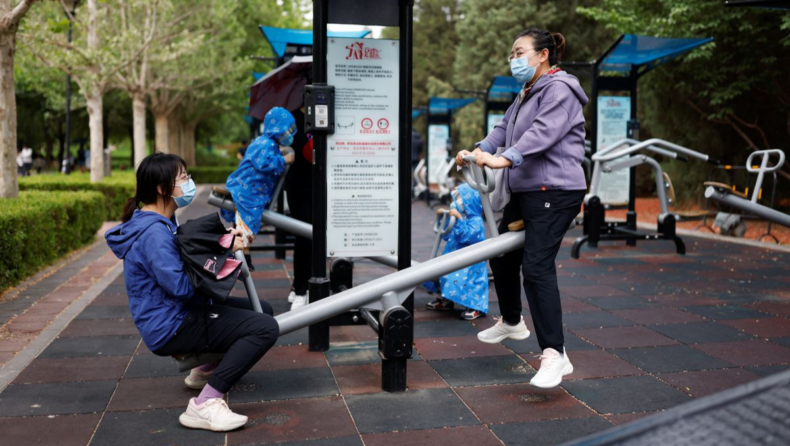Coronavirus curbs in major Chinese cities like Shanghai contrast with the trend seen in the rest of the world, which has tended to return to everyday life even as infections spread.
On Sunday, the Shanghai administration said it would remove “unreasonable” restrictions on businesses as it works to lift its COVID-19 lockdown. As infections stabilised, Beijing reopened parts of its public transport system, some malls, and other venues.
The Chinese hub of 25 million people hopes to end its two-month lockdown on Wednesday, which has severely damaged the economy, caused residents to lose income, and caused many to struggle to obtain food.
As of June 1, Shanghai, China’s most populous city, will end many conditions for businesses to resume work. Among other measures, the city has reduced some taxes on car purchases, accelerated the issuance of local government bonds, and accelerated the approvals of real estate projects.

In this year’s budget, Shanghai plans to renew loans of $15 billion to small and medium enterprises. “We will fully support and organise the resumption of work and production of enterprises in various industries and fields,” vice mayor Wu Qing told reporters, adding that “unreasonable” COVID restrictions on businesses would be lifted. We did not give details of which restrictions would be cancelled.
In April, Shanghai published “white lists” of manufacturers in the auto industry, life sciences, chemicals and semiconductors allowed to resume operations. Many companies still had logistical bottlenecks because their suppliers could not reopen.
In addition, many industry executives complained about onerous COVID curbs, which forced them to find accommodations for staff trying to isolate and implement rigorous disinfection. As a result, most businesses in the city are still shut.
All “white lists” would be abolished, Wu said. The city was to ease testing requirements from Wednesday for people who wish to enter public areas to encourage people to return to work, a spokeswoman for the city said earlier on Sunday.
“The current epidemic situation in the city continues to stabilise and improve,” Yin said, adding Shanghai’s strategy was “pivoting towards normalised prevention and control.” People entering public venues or taking public transportation must show a negative PCR test taken within 72 hours, an increase from 48 hours previously.
Officials said that bus services within the Pudong New Area, home to Shanghai’s largest airport and the central financial district, would fully resume by Monday. Shanghai’s Plaza 66, which houses Louis Vuitton and other luxury brands, reopened on Sunday. Authorities have been slowly relaxing curbs, focusing on getting manufacturing going again.

As a result, more people can now leave their homes, and more businesses can reopen. However, many residents remain confined to housing compounds, and most shops are only open for delivery services. Private cars are not allowed out without permission, and most of the city’s public transport is closed. However, there has yet to be a detailed plan for how the lockdown will be lifted.
Leisure Activities
China’s capital Beijing allowed libraries, museums, theatres, and gyms to reopen on Sunday, but with a limit on the number of people in districts with no community COVID-19 cases for seven consecutive days.
As a result, work-from-home rules will end in Fangshan and Shunyi, while public transportation will essentially resume in the two districts and Chaoyang, the city’s largest. However, restaurant dining is still prohibited in the city.
On Sunday, there were just over 100 new COVID cases in Shanghai and 21 in Beijing, which is in line with the national trend.

The Chinese economy has shown some signs of recovery following an April slump, but activity is weaker than last year, and many analysts expect a second-quarter contraction. COVID is key to any recovery, with the highly transmissible Omicron variant proving challenging to eradicate and prone to comebacks.
The lack of a roadmap for exiting President Xi Jinping’s zero-COVID policy of ending all outbreaks at any cost worries investors. A Communist Party congress is expected to give him an unprecedented third term as leader. The economy is expected to receive more support in the market.
As a result of downward pressures on growth and uncertainty about the recovery pace, Goldman Sachs analysts anticipate further fiscal easing to boost demand.
Read More : Disillusioned Shanghai Residents Break Out













